George Orwell's 1984: 70 years after, the world's first dystopian novel is as relevant as ever
“It was a bright cold day in April, and the clocks were striking thirteen.” Seventy years after the publication of George Orwell's dystopian masterpiece, Nineteen Eighty-Four, the book's first lines are a crystal clear warning of what we have become. Observed, angry, with surveillance abound funded by the State and the corps which work for and with it. In his novel published in June 1949 the iconic English novelist and essayist, journalist and critic speak on the risks of government overreach, totalitarianism and repressive regimentation of all persons and behaviors within society.
Set in an imagined future, the year 1984, when much of the world has fallen victim to perpetual war, omnipresent government surveillance and propaganda, the book is ominous and more relevant than ever.
Chosen by Time magazine as one of the 100 best English-language novels from 1923 to 2005 the book is not a warning, for many. It is a prophecy of now. Five summers ago, on June 2013 with the release of a landmark report, the United Nations has broken its long-held silence about the threat that State surveillance poses to the enjoyment of the right to privacy.
The message is clear: State surveillance of communications is ubiquitous, and such surveillance severely undermines citizens’ ability to enjoy a private life, freely express themselves and enjoy their other fundamental human rights. Presented at the UN Human Rights Council session in Geneva in 2013, the report marked the first time the UN has emphasised the centrality of the right to privacy to democratic principles and the free flow of speech and ideas.
The UN report notes that modern surveillance technologies and arrangements enable States to intrude into an individual’s private life, threatening to blur the divide between the private and the public spheres. Citizens are no longer able to even know that they have been subjected to such surveillance, let alone challenge it. The UN report cautions that the greatest danger “is the global industry that has developed around the sale of invasive and mass surveillance technologies to governments” -an industry which is “virtually unregulated” and often operates outside of existing legal standards making it easy for repressive regimes to carry out human right abuses.
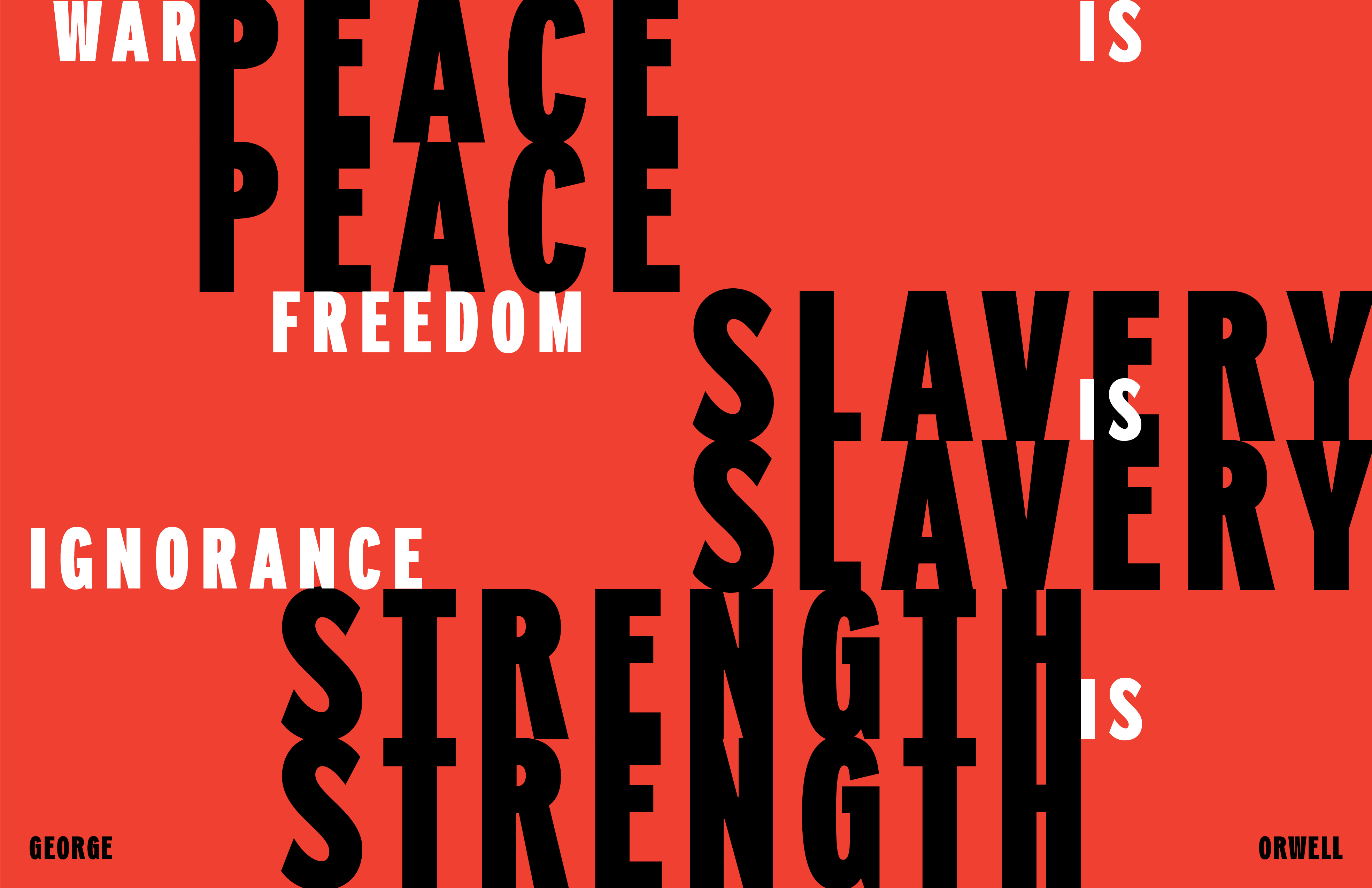
Nineteen Eighty-Four was published on 8 June 1949. George Orwell died less than eight months later at the age of 46. An obsession, a prophecy or a report?
The UN calls on governments to “ensure that the private sector is able to carry out its functions independently in a manner that promotes individuals’ human rights". At the same time, the report states that corporations “cannot be allowed to participate in activities that infringe upon human rights, and States have a responsibility to hold companies accountable in this regard.”
In a post Cambridge Analytica, social media dominated, era, Orwell's book seems not only chilly but as relevant as ever. The book, a hit among readers since Donald Trump’s arrival in the White House in January 2017, which turned 70 this month was lethal for Orwell who was so determined to finish it that he refused to retreat to a sanatorium to seek treatment for his tuberculosis, a decision which probably doomed him to death.
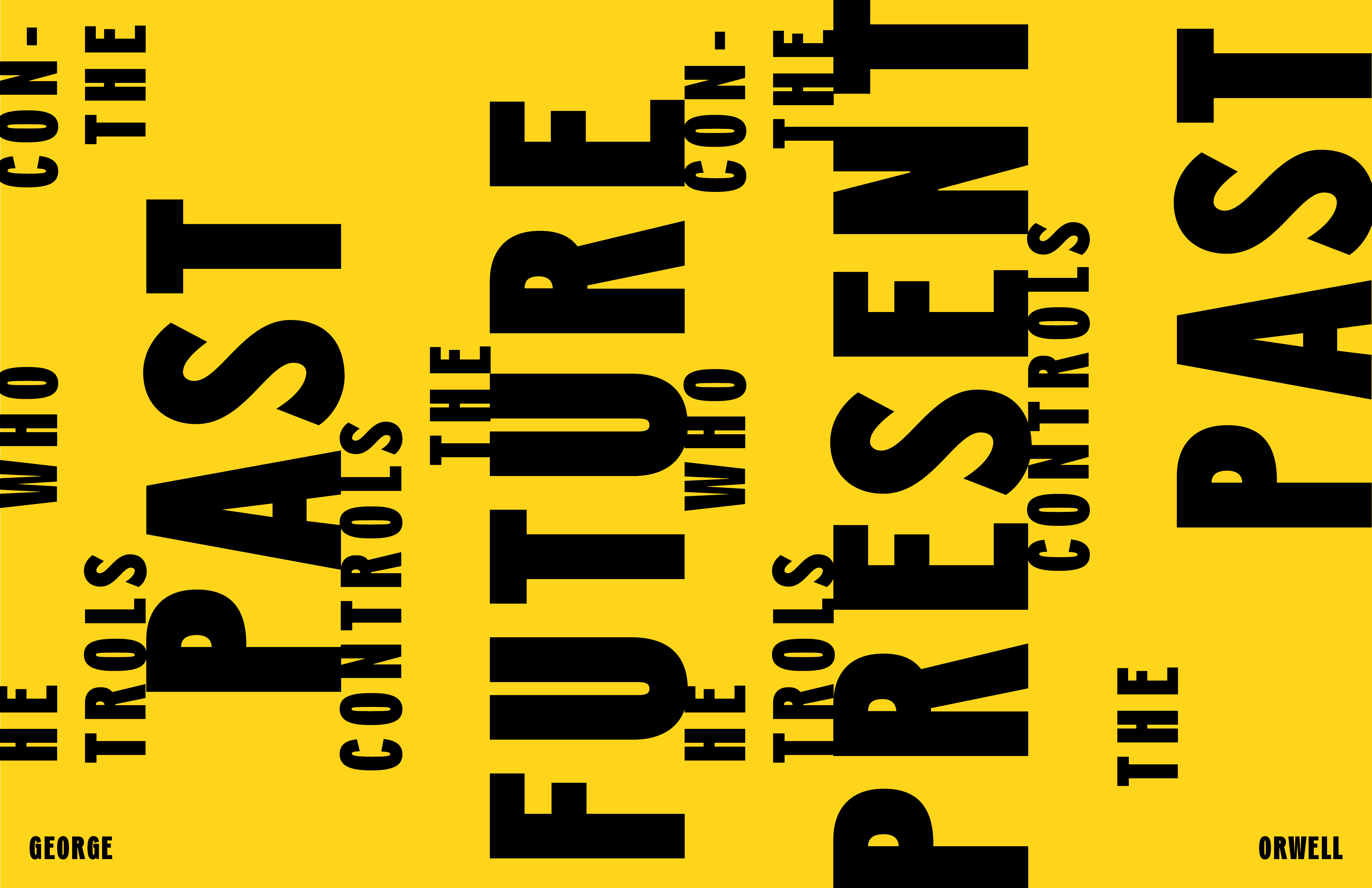
Nineteen Eighty-Four was published on 8 June 1949. George Orwell died less than eight months later at the age of 46. An obsession, a prophecy or a report? This is what Orwell wrote in his letter to Noel Willmett, who had asked him “whether totalitarianism, leader-worship etc. are really on the up-grade" given “that they are not apparently growing in [England] and the USA” back in 1944 from Peter Davison's book, George Orwell: A Life in Letters by Penguin Modern Classics. His words do not speak of our times yet provide Orwell's state of mind before writing his chilling opus.
“I must say I believe, or fear, that taking the world as a whole these things are on the increase. Hitler, no doubt, will soon disappear, but only at the expense of strengthening (a) Stalin, (b) the Anglo-American millionaires and (c) all sorts of petty fuhrers of the type of de Gaulle. All the national movements everywhere, even those that originate in resistance to German domination, seem to take non-democratic forms, to group themselves round some superhuman fuhrer (Hitler, Stalin, Salazar, Franco, Gandhi, De Valera are all varying examples) and to adopt the theory that the end justifies the means. Everywhere the world movement seems to be in the direction of centralised economies which can be made to ‘work’ in an economic sense but which are not democratically organised and which tend to establish a caste system.
With this go the horrors of emotional nationalism and a tendency to disbelieve in the existence of objective truth because all the facts have to fit in with the words and prophecies of some infallible fuhrer. Already history has in a sense ceased to exist, ie. there is no such thing as a history of our own times which could be universally accepted, and the exact sciences are endangered as soon as military necessity ceases to keep people up to the mark. Hitler can say that the Jews started the war, and if he survives that will become official history. He can’t say that two and two are five, because for the purposes of, say, ballistics they have to make four.
But if the sort of world that I am afraid of arrives, a world of two or three great superstates which are unable to conquer one another, two and two could become five if the fuhrer wished it. That, so far as I can see, is the direction in which we are actually moving, though, of course, the process is reversible.

Do we live in an Orwellian world? A world filled with official deception, secret surveillance, brazenly misleading terminology, and manipulation of recorded history by a totalitarian or authoritarian state, as described by the author?
As to the comparative immunity of Britain and the USA. Whatever the pacifists etc. may say, we have not gone totalitarian yet and this is a very hopeful symptom. I believe very deeply, as I explained in my book The Lion and the Unicorn, in the English people and in their capacity to centralise their economy without destroying freedom in doing so. But one must remember that Britain and the USA haven’t been really tried, they haven’t known defeat or severe suffering, and there are some bad symptoms to balance the good ones.
To begin with there is the general indifference to the decay of democracy. Do you realise, for instance, that no one in England under 26 now has a vote and that so far as one can see the great mass of people of that age don’t give a damn for this? Secondly there is the fact that the intellectuals are more totalitarian in outlook than the common people.
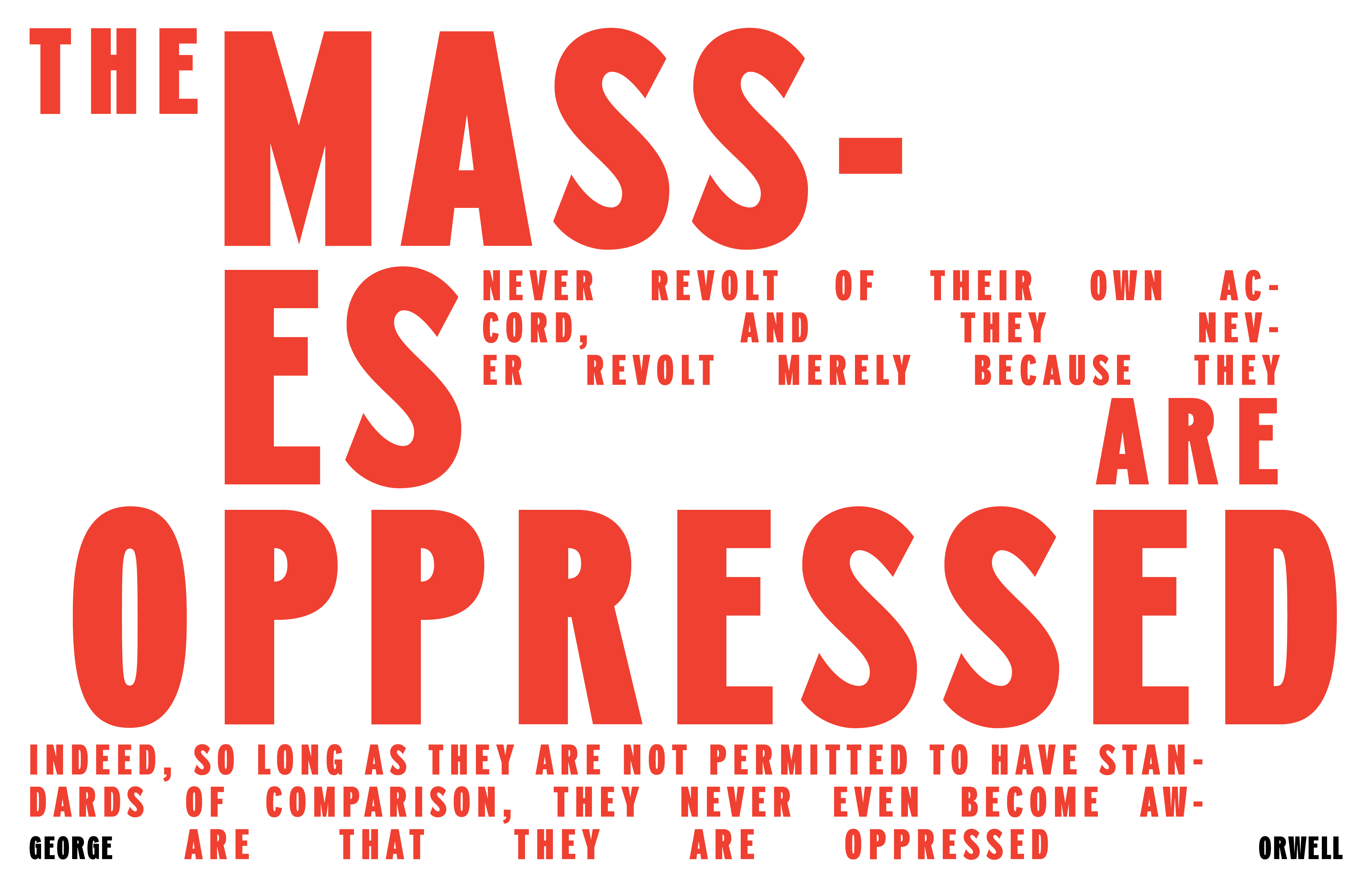
On the whole the English intelligentsia have opposed Hitler, but only at the price of accepting Stalin. Most of them are perfectly ready for dictatorial methods, secret police, systematic falsification of history etc. so long as they feel that it is on ‘our’ side. Indeed the statement that we haven’t a Fascist movement in England largely means that the young, at this moment, look for their fuhrer elsewhere. One can’t be sure that that won’t change, nor can one be sure that the common people won’t think ten years hence as the intellectuals do now. I hope they won’t, I even trust they won’t, but if so it will be at the cost of a struggle. If one simply proclaims that all is for the best and doesn’t point to the sinister symptoms, one is merely helping to bring totalitarianism nearer.
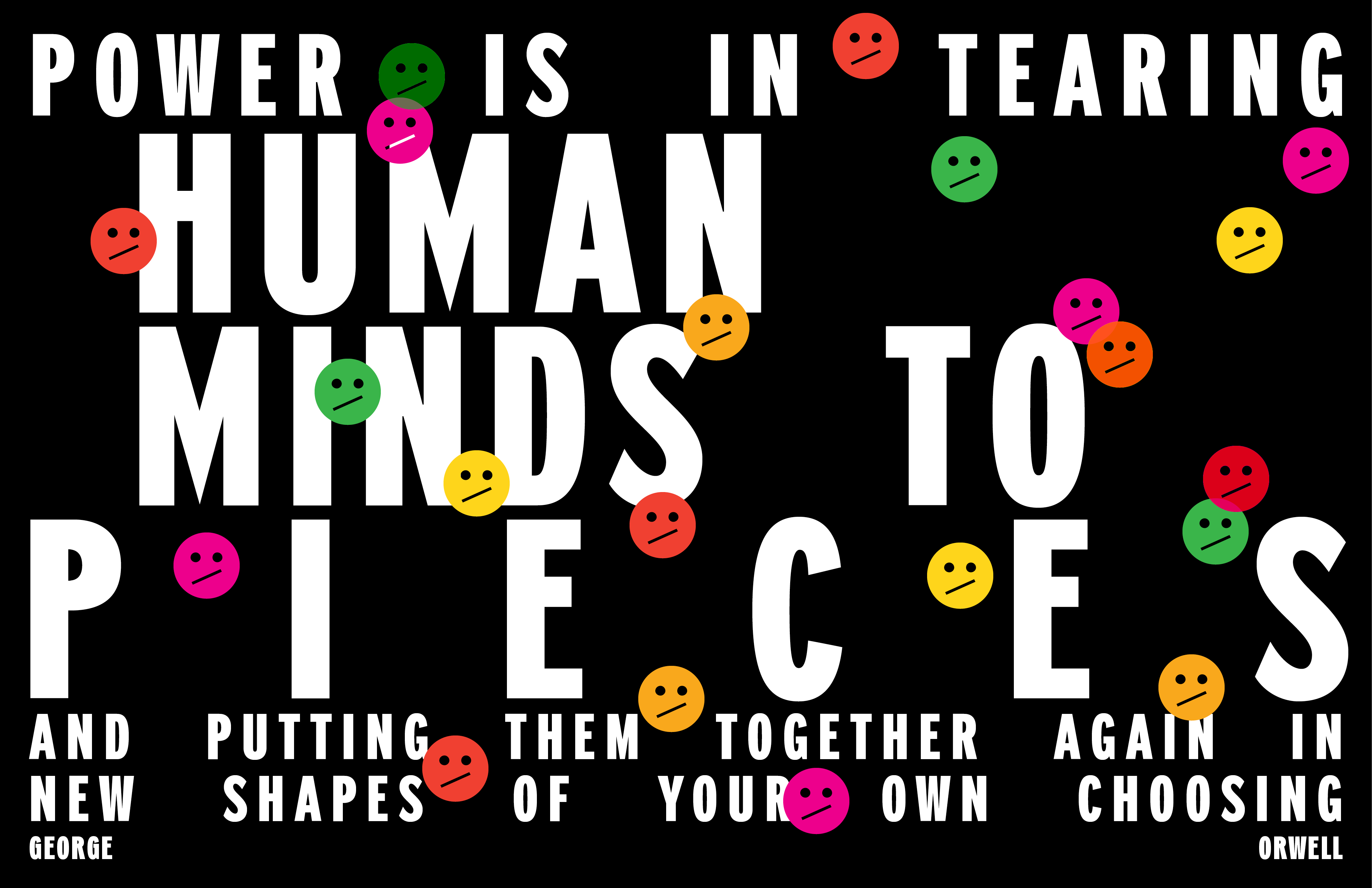
You also ask, if I think the world tendency is towards Fascism, why do I support the war. It is a choice of evils—I fancy nearly every war is that. I know enough of British imperialism not to like it, but I would support it against Nazism or Japanese imperialism, as the lesser evil. Similarly I would support the USSR against Germany because I think the USSR cannot altogether escape its past and retains enough of the original ideas of the Revolution to make it a more hopeful phenomenon than Nazi Germany. I think, and have thought ever since the war began, in 1936 or thereabouts, that our cause is the better, but we have to keep on making it the better, which involves constant criticism.
Yours sincerely,
Geo. Orwell”
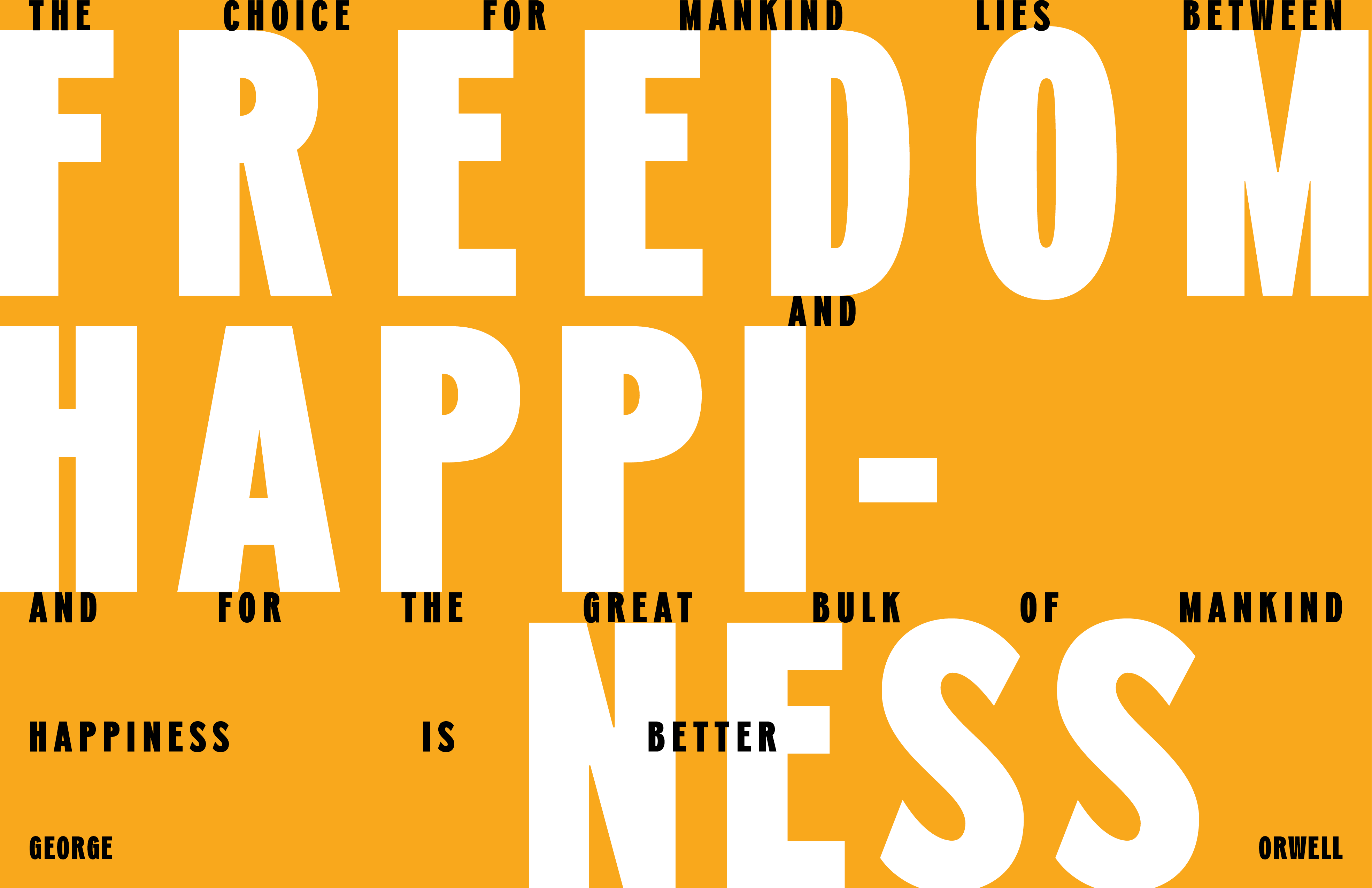
The message is clear in the UN's 2013 report. State surveillance of communications is ubiquitous, and such surveillance severely undermines citizens’ ability to enjoy a private life, freely express themselves and enjoy their other fundamental human rights.
Three years later, Orwell would write 1984. Featuring the twelve most important quotes from the book, this is Typeroom's tribute to the first dystopian novel ever written. Do we live in an Orwellian world?
A world filled with official deception, secret surveillance, brazenly misleading terminology, and manipulation of recorded history by a totalitarian or authoritarian state, as described by the author? Your choice of Big Brother will provide the answers in this unnerving territory we live in, between fact and fiction, between truth and lies.
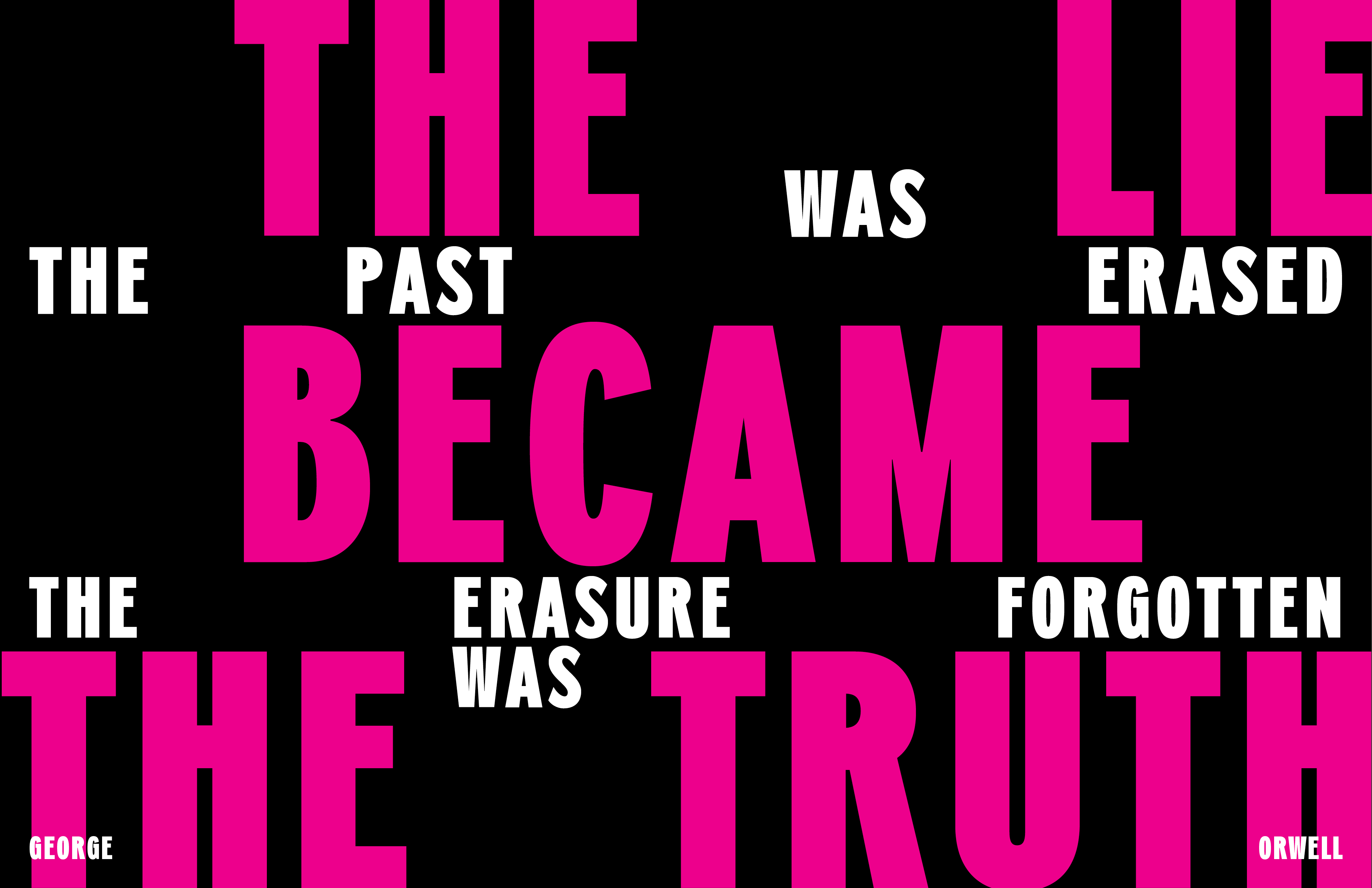
This is 1984 in 12 parts for the many decades to come
“War Is Peace. Freedom Is Slavery. Ignorance Is Strength.”
“He who controls the past controls the future. He who controls the present controls the past.”
“How do we know that two and two make four? Or that the force of gravity works? Or that the past is unchangeable? If both the past and the external world exist only in the mind, and if the mind itself is controllable – what then?”
“The Party seeks power entirely for its own sake. We are not interested in the good of others; we are interested solely in power – pure power.”
“Power is not a means; it is an end. One does not establish a dictatorship in order to safeguard a revolution; one makes the revolution in order to establish the dictatorship.”
“The masses never revolt of their own accord, and they never revolt merely because they are oppressed. Indeed, so long as they are not permitted to have standards of comparison, they never even become aware that they are oppressed.”
“Power is in tearing human minds to pieces and putting them together again in new shapes of your own choosing.”
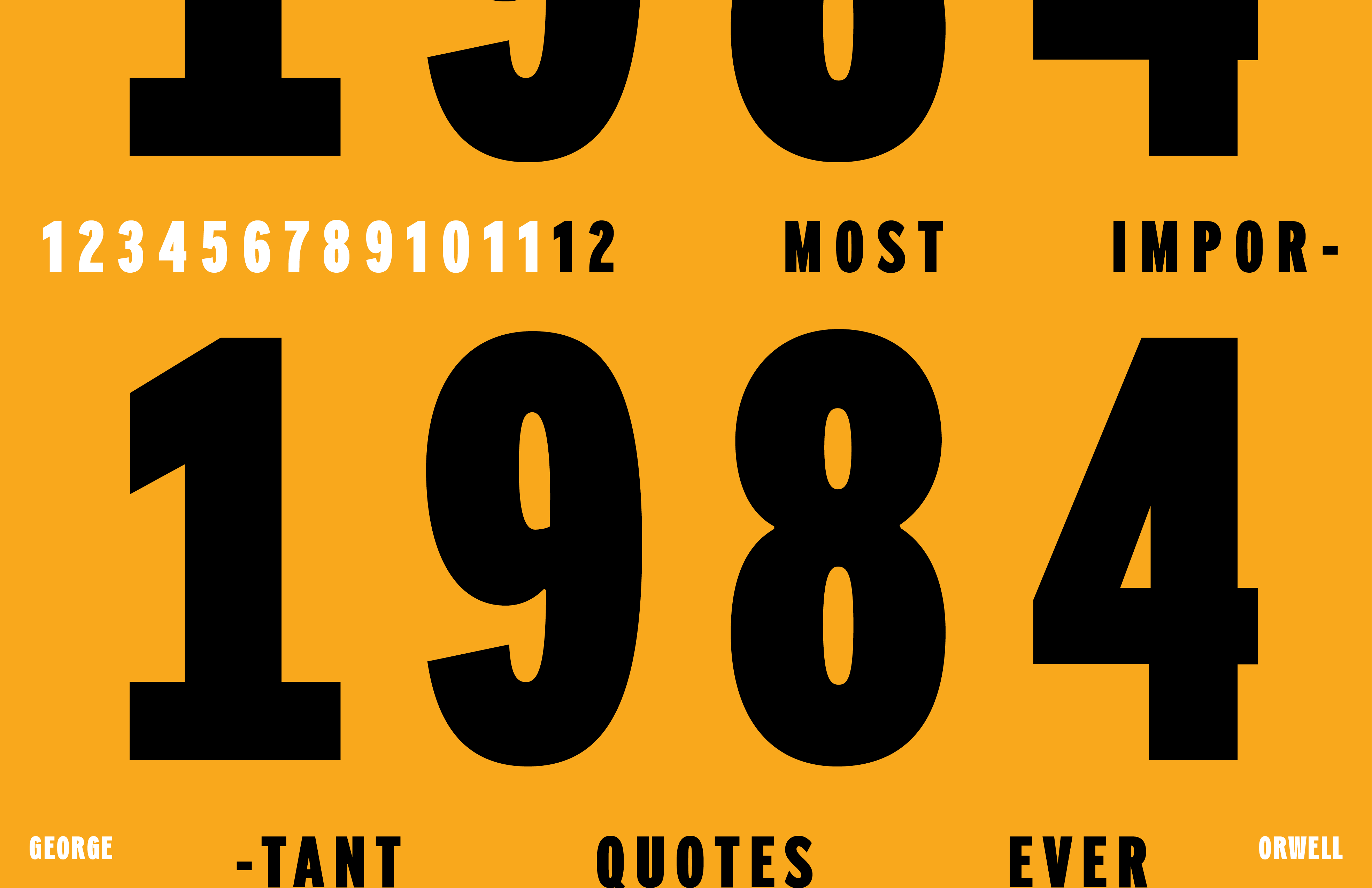
“The choice for mankind lies between freedom and happiness and for the great bulk of mankind, happiness is better.”
“What can you do, thought Winston, against the lunatic who is more intelligent than yourself; who gives your arguments a fair hearing and simply persists in his lunacy?”
“Reality exists in the human mind and nowhere else.”
“The past was erased, the erasure was forgotten, the lie became the truth.”
“There was truth and there was untruth, and if you clung to the truth even against the whole world, you were not mad.”
Fonts in use: Pf Grand Gothik Compressed (Set 3)
Tags/ inspiration, facebook, quotes, anniversary, bbc, donald trump, united nations, george orwell, 1984, dystopia, surveillance, big brother, author




















